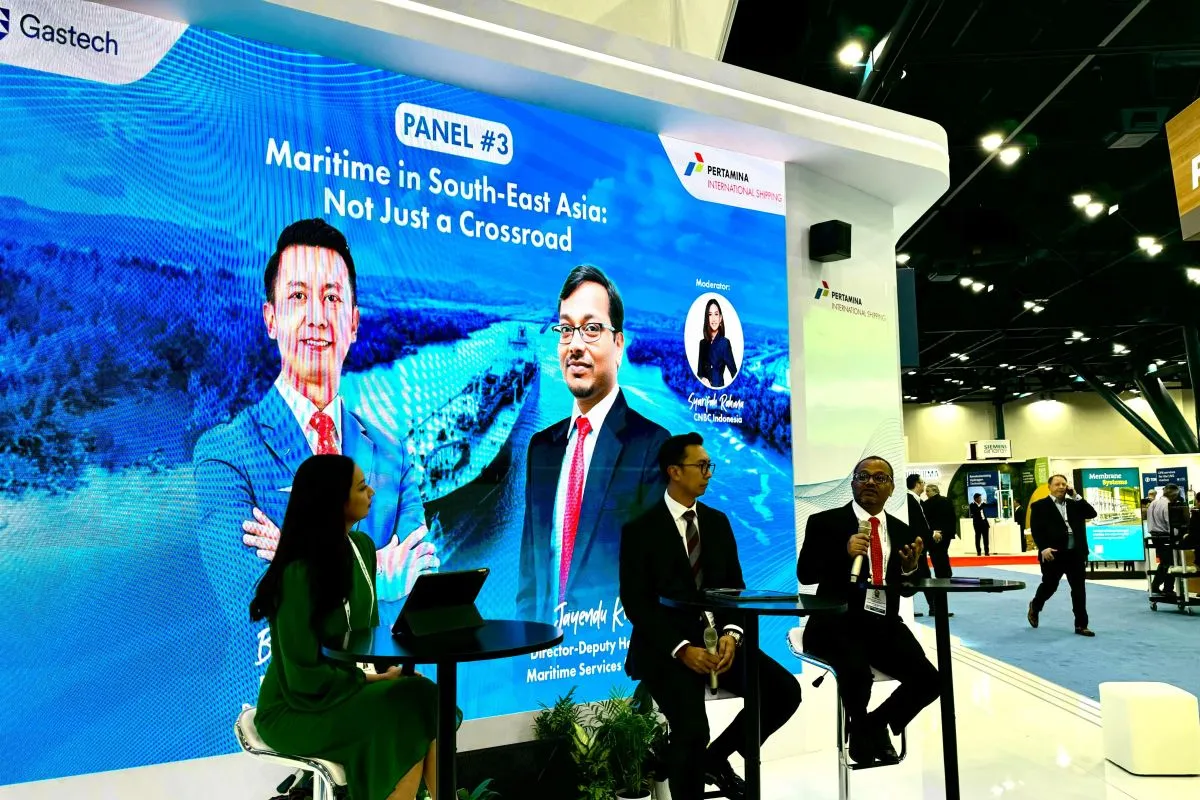WNAM REPORT: PT Pertamina International Shipping (PIS) is ready to capitalize on Southeast Asia’s momentum as a major global LNG trading hub. In addition to its strategic position as a maritime crossroads, several Southeast Asian countries, including Indonesia, are planning to increase their LNG production to meet export market demands.
Brilian Perdana, Director of Crude Oil and Petroleum Tankers at PIS, stated at the Gastech 2024 forum in the United States that global LNG demand is expected to grow by about 5% annually, reaching 666 million tonnes per annum (mtpa) by 2033. To meet this demand, it is estimated that 100 new ships will be needed over the next nine years.
“That’s why we are working to renew our fleet. At the same time, we are open to adopting the latest environmentally friendly technologies in terms of efficiency and consumption to meet this high demand,” Brilian added.
LNG has proven to be an alternative energy source with lower emissions compared to other energy sources. Moreover, this commodity plays a crucial role in supporting the energy transition.
In anticipation of this, PIS is preparing to enter the LNG market by acquiring LNG carriers. PIS’s capacity and portfolio as a maritime logistics company in the international market provide a strong foundation for contributing to the provision of environmentally friendly energy.
Brilian further mentioned that PIS is not only preparing its tanker fleet but is also continuously developing the capacity and capabilities of Indonesian sailors to compete globally. “Currently, 60% of the world’s sailors come from the Philippines and Indonesia, so from a demographic standpoint, we have the potential for further development and enhancement of our sailors’ skills.”
Jayendu Krishna, Director Deputy Head of Drewry Maritime Services Asia Pte Ltd, revealed that Southeast Asia has recorded stable annual growth of over 4%. From this growth, Southeast Asia’s Gross Domestic Product (GDP) stands at $3.4 trillion.
“Certainly, there are very good growth prospects for this region, and we expect growth above 4% for all of Southeast Asia,” Krishna said. With this achievement, Southeast Asia’s GDP could become the fifth largest in the world after the United States, China, Japan, and Germany.
Krishna noted that the opportunity for PIS to be at the forefront of the clean energy sector is wide open. He pointed out that PIS has a large and advanced fleet, while many other shipowners in Southeast Asia are still relatively small and less equipped to meet sustainability goals.
“PIS has the potential to be a pioneer in decarbonization efforts. Determining the right ways to decarbonize and the impact of these targets on climate change is the most pressing concern in the industry today,” Krishna concluded.


